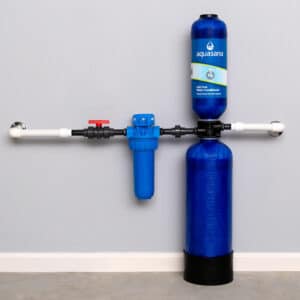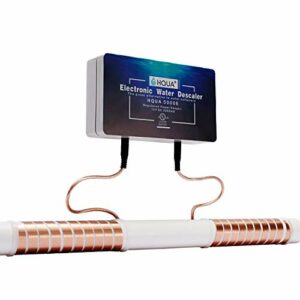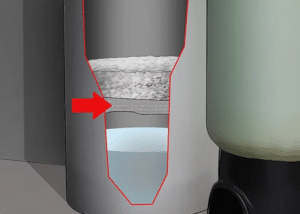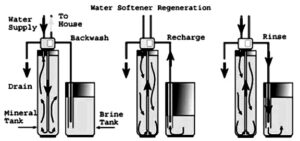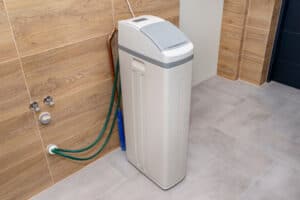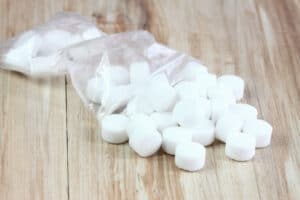Let’s face it; tap water isn’t the greatest. It often doesn’t taste great, smell great, or sometimes even look great. It may not be great for your health, either.
Luckily, there are great ways to improve your tap water, even if you’re on a budget. Let’s take a look at two of these solutions and compare faucet filter vs. pitcher filter designs.
TL;DR – Faucet Filter vs Pitcher
Water Filter Pitchers are the best choice for filtered water with no installation considerations or compatibility concerns. Just pour water in the top and wait for it to fill the bottom section of the pitcher. There are no hassles here, except for the increased filtering time.
A faucet filter is the best choice for those with a compatible faucet and who don’t mind the extra device on the tap. Decreased filtering time, the ability to toggle between filtered and non-filtered water, and cartridge life indicators make faucet water filters the all-around best choice for those wanting better tasting, healthier water on a budget.
Faucet Water Filters
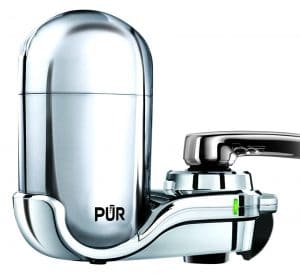
Faucet filters, as the name implies, install directly on your existing fixture. Some faucets won’t accommodate a faucet filter. If yours doesn’t, a pitcher filter is your best option.
For standard faucets, the installation is straight-forward, only taking ten to fifteen minutes. Faucet filters use your home’s water pressure to force the water through the filter, which leads to filtering rates of around a half-gallon per minute.
These filters have a limited service life. Most faucet filters come equipped with visual indicators to let you know when they’re ready to be changed. We recommend paying a little extra for this feature. A filter gauge helps you plan and prevents you from changing your filter prematurely.
Typically, a faucet filter’s cartridge will last 40 gallons or about two months of regular use. Fortunately, they only cost about twenty dollars a pair, which means you should always have a backup.
With all of the faucet filters, the advantages come at a slightly higher cost. Still, if you have a compatible faucet, it’s hard to beat a good faucet filter.
- Fits on most existing faucets
- Water pressure assists in fast filtering
- Variety of finishes to match your decor
- Installation required
- Higher cost than pitcher filters
Pitcher Filters
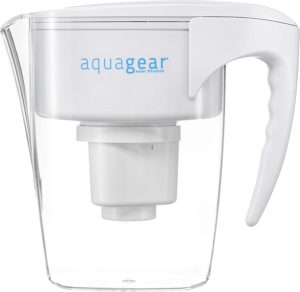
Water Filter Pitchers use the same filtering elements as faucet filters. The method of delivery for the water as it passes through the filter is the key difference. In the case of pitcher filters, the answer is gravity.
Since Pitcher filters are gravity fed, filtering times are much longer than those for faucet filters. Once you fill your pitcher water filter, it’s best to wait and let it do its thing. That can sometimes mean up to fifteen minutes.
Filter as you pour models are now on the market, but you’ll want to pay particular attention to these modes. Typically, the faster a pitcher filter works, the less filtration is taking place.
Pitcher filters are less likely to include filter life gauge. That means you’ll often need to run by the calendar alone. Fortunately, there are many services available that will mail you filters on a subscription basis. Keep this in mind: you need to replace your filter earlier if you have hard or silty water.
When in doubt, change your water pitcher filter cartridge when you notice a slow down in filtering performance.
- Can be stored when not in use
- No installation or compatibility concerns
- You have the option of chilling your water
- Slower filtration rates
- Difficult to pour during the filtering process
- Less likely to have filter replacement gauge

